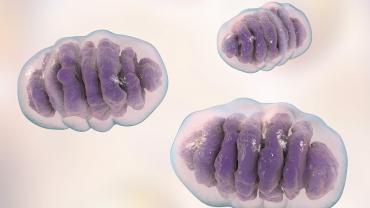
The mitochondria are often referred to as the powerhouse of the cell. This organelle houses the processes that create energy in the form of adenosine triphosphate (ATP) via oxidative phosphorylation from food. However, this is not the only way in which the mitochondria play key roles in human health and disease. They also participate in cell cycle regulation, apoptosis, redox homeostasis, and calcium-related signaling activity.
The number and health of mitochondria impact overall health, energy levels, inflammation levels, oxidative stress, and more. Mitochondrial dysfunction potentially plays a role in numerous chronic diseases, including obesity, diabetes, neurodegenerative disorders, heart disease, sepsis, and other age-related and metabolic disorders. Finding ways to enhance mitochondrial biogenesis, or the creation of new mitochondria, may lower the risk of chronic disease and other problems associated with mitochondrial dysfunction.
One potential biogenesis stimulator is pyrroloquinoline quinone (PQQ), a redox cofactor that can act as both a prooxidant and antioxidant to restore redox balance. A variety of dietary sources including tea, fermented soybeans, vegetables, and fruits contain PQQ. Animal studies have found that a deficiency in PQQ may lead to a reduction in the number and size of mitochondria by 20% to 30%.
The ability of PQQ to impact mitochondrial health goes beyond its role as a redox-balancing element. PQQ supplementation may increase mitochondria biogenesis by activating proliferator-activated receptor-gamma-coactivator-1 alpha (PGC-1α) and 3’,5’-cyclic adenosine monophosphate response element-binding protein (CREB). PGC-1α is the main regulator for gene transcription and replication for creating new mitochondria, and CREB increases transcription of PGC-1α. Animal studies have found that PQQ supplementation stimulates PGC-1α-mediated mitochondrial biogenesis through sirtuin 1 activity and may also activate 5’-adenosine monophosphate-activated protein kinase (AMPK), which is another important regulator of mitochondrial biogensis.
Although much of the research for the ability of PQQ to multiply mitochondria remains in animal and mechanistic stages, some human studies have supported the hypotheses. In one randomized controlled trial, nonendurance-trained men taking PQQ (20 mg per day) for 6 weeks, while also undergoing an endurance exercise training program, did not have any significant difference in performance compared to the placebo group. However, they did experience a significant increase in PGC-1α protein levels, which most likely relates to an increase in mitochondrial biogenesis. In a small human study with a crossover design in 10 subjects, it was found that PQQ supplementation led to increased antioxidant potential, reduced inflammation, and urinary metabolite markers suggesting improved mitochondrial efficiency.
Exercise has long been identified as one way to multiply mitochondria by stimulating biogenesis; however, PQQ is emerging as another potential way to instigate the mechanisms that build new mitochondria.
By Kendra Whitmire, MS, CNS